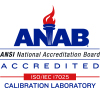 Posted on
Posted on 
In modern industries, the ability to monitor and control various parameters with precision is crucial for ensuring product quality, operational efficiency, and regulatory compliance. Amidst this backdrop, MadgeTech emerges as a pioneering force, revolutionizing monitoring and control across diverse sectors through its advanced solutions tailored for various applications.
At the heart of MadgeTech’s offerings lies a comprehensive range of data loggers equipped with cutting-edge technology, designed to capture and analyze critical parameters in real-time. From temperature and humidity to pressure and pH levels, MadgeTech’s data loggers provide industries with a versatile toolkit to monitor and control a wide array of variables with unparalleled accuracy.
One of the hallmarks of MadgeTech’s solutions is their adaptability to the unique needs of different industries. Whether it’s monitoring environmental conditions in pharmaceutical manufacturing, ensuring food safety in the agri-food sector, or maintaining optimal conditions in research laboratories, MadgeTech’s data loggers offer tailor-made solutions to address specific challenges across diverse domains.
Moreover, MadgeTech’s commitment to innovation extends beyond hardware to encompass powerful software solutions that facilitate seamless data collection, analysis, and visualization. With user-friendly interfaces and robust reporting capabilities, MadgeTech empowers industries to unlock actionable insights from their data, enabling informed decision-making and process optimization.
MadgeTech’s unwavering dedication to customer satisfaction sets it apart in the market. With a team of experienced professionals providing comprehensive support and guidance, MadgeTech ensures that its solutions are not just tools but partners in driving success for its clients across industries.
Through innovation, adaptability, and exceptional customer support, MadgeTech stands at the forefront of revolutionizing how industries harness data to enhance their operations and achieve their goals.










